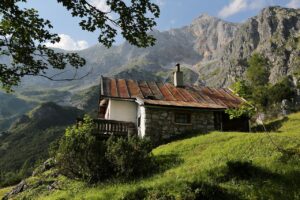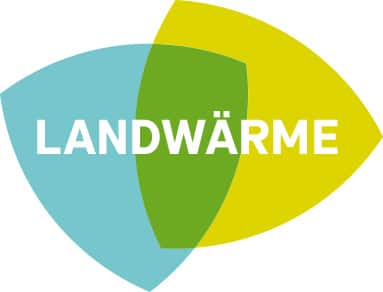4th Lights on Women Scholarship: meet the recipients!
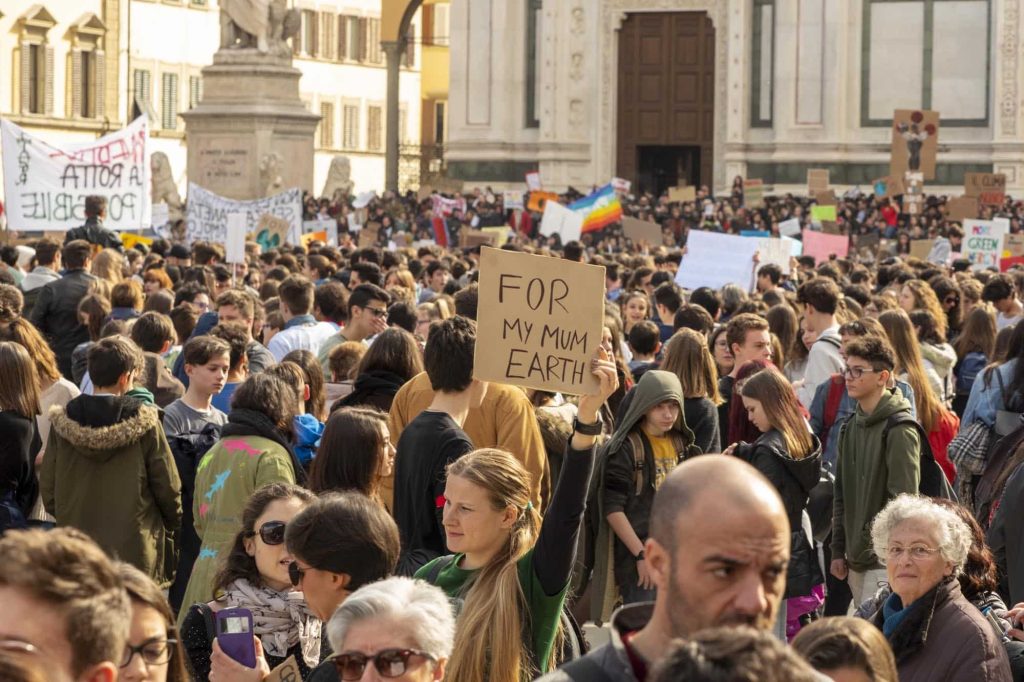
Lights on Women is delighted to announce the nine winners of the 2022 LoW Scholarships: Nina Bot-Timothy, Sofia Karagianni, Marina Monciatti, Lea Tatry, Carolina Quijada, Valbona Karapici, Eglė Karečkaitė, Alicia Bassière, Katherine Daman.
The 4th Lights on Women Scholarship recipients come from 8 different countries, across three continents, and have wide-ranging sets of interests from climate security to energy market modelling, SDG7, clean technologies, and environmental development. They also have strikingly different backgrounds: from law firm associates to engineers, academics, and entrepreneurs.
They have at least one thing in common: these women are at the forefront of new, ever-changing energy and climate sectors with the same objective, accelerating the energy transition through their work and advocacy.
LoW scholarship award
The scholarship recipients will be awarded access to one free seat each on our FSR courses and will have an opportunity to contribute to our blog with a topic of their choice. The courses in the FSR offering this year were Regulation of the Power Sector, The EU green deal, Regulation for Sustainable Development Goals 7, Electric Vehicles and Evolution of the Electricity Markets in Europe.
If you want to discover more about the Lights on Women project and become part of our network of women in energy, subscribe to our newsletter and check out our newest initiative.
Here are the profiles of our winners, current occupations, vocations and future ambitions:
Nina Seime Bot-Timothy
 Nina holds a Bachelor of Laws (LL.B) (University of Lagos) and is a lawyer by training, with a licence to practice obtained in her home country, Nigeria, in 2019. Her topics of interest are clean energy, power infrastructure, and policy compliance. In her career, she looks for roles that leverage inclusivity and stakeholder management to design policy, create, develop and manage strategies promoting clean energy & sustainability.
Nina holds a Bachelor of Laws (LL.B) (University of Lagos) and is a lawyer by training, with a licence to practice obtained in her home country, Nigeria, in 2019. Her topics of interest are clean energy, power infrastructure, and policy compliance. In her career, she looks for roles that leverage inclusivity and stakeholder management to design policy, create, develop and manage strategies promoting clean energy & sustainability.
Since 2019, she has been working at Nayo Tropical Technology Limited FCT (Abuja, Nigeria) As a Policy & Compliance Officer.
She details her experience in Nigeria with renewables: “As a policy analyst and lawyer working in the industry, I have noted the need for not just having better policies, but having the right policies that address specific country needs at specific times.
Twenty years ago in Nigeria, the incorporation of renewable energy in the country’s energy mix was theoretical at best. Today, with some government bodies championing interconnected mini-grids with solar energy, the integration of RES is a reality and a possibility on a large scale. In the communities where solar technologies have been deployed, we see a reduced dependence on petroleum products, which have been relegated as a backup to the solar mini-grids at night time.
These results can be replicated elsewhere in the country, contributing to Nigeria’s Nationally Determined Contribution to achieving net zero carbon emission goals.”
Sofia Karagianni
Born in Greece, Sofia is an EU-qualified lawyer and works as a policy officer at Cleantech for Europe, Belgium. Before joining Cleantech for Europe, Sofia worked in EU climate and financial policy at a leading US international law firm based in Brussels. Sofia is a member of the Global Shapers Community of the World Economic Forum and is passionate about diversity and inclusion, having co-founded two initiatives focusing on women’s economic empowerment.
She spoke of why she chose this career path: “Inspired by the breadth of opportunities the Green Deal is creating, I quit my job as a lawyer and joined Cleantech for Europe, a policy coalition supported by Bill Gates’ investment fund, Breakthrough Energy, to scale up cleantech in the EU.
At Cleantech for Europe, I am producing policy research and leading initiatives to raise awareness for clean technologies and guide policymakers towards devising legal frameworks fit for climate innovation.”
“I expect to contribute further to the energy transition through my research and advocacy work and by creating a positive movement in Brussels to make sustainability a norm and create more impetus for green products, like green steel.”
I expect to contribute further to the energy transition through my research and advocacy work and by creating a positive movement in Brussels to make sustainability a norm and create more impetus for green products, like green steel.
Katherine Daman
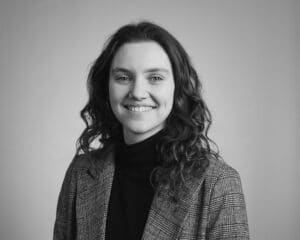 While studying for a Renewable Energy and Storage Systems module during her M.Eng in Chemical Engineering (University of Birmingham, UK), Katherine first became acquainted with the notion of the energy transition. These studies inspired her to apply to join the National Grid graduate scheme, where new graduates are encouraged to find solutions to one of the most significant problems humanity has ever faced – climate change. In the 18-month programme, she worked on developing a new market ancillary service required for a future low inertia system.
While studying for a Renewable Energy and Storage Systems module during her M.Eng in Chemical Engineering (University of Birmingham, UK), Katherine first became acquainted with the notion of the energy transition. These studies inspired her to apply to join the National Grid graduate scheme, where new graduates are encouraged to find solutions to one of the most significant problems humanity has ever faced – climate change. In the 18-month programme, she worked on developing a new market ancillary service required for a future low inertia system.
She currently works as an analyst for Timera Energy, focusing on power market analysis and valuation & optimisation of flexible power assets, particularly short-duration battery storage.
She spoke of the importance of acknowledging the role of women in the energy field and the difficulties they still face: “I have applied for this scholarship as I strongly recognise the benefit of having a solid line of female leadership. Additionally, more recently, I have found myself to be one of the only women in a project, often surrounded by more senior men, where an imposter syndrome feeling begins to arise.
Joining a network of empowered women within the industry while also undertaking further study on the evolution of electricity markets in Europe, will not only expand my knowledge and enable me to position myself as a subject-matter expert, but also grow my confidence in client-facing situations.”
Lea Tatry
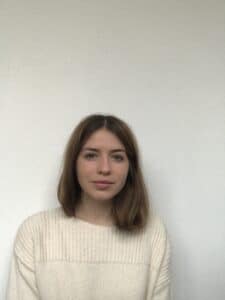 Lea is an engineer in Material Sciences with a Master of Advanced Studies in Energy Systems Optimization (Mines ParisTech, Paris) from France. Her professional interests lie in the interactions between energy transition, social development, and security under the constraint of climate change. She currently works as an Energy expert at Stantec, Belgium, where she serves explicitly as a junior modelling and planning expert for the EU Global Technical Assistance Facility (GTAF) project: Modelling of the African Continental Power System Masterplan (CMP).
Lea is an engineer in Material Sciences with a Master of Advanced Studies in Energy Systems Optimization (Mines ParisTech, Paris) from France. Her professional interests lie in the interactions between energy transition, social development, and security under the constraint of climate change. She currently works as an Energy expert at Stantec, Belgium, where she serves explicitly as a junior modelling and planning expert for the EU Global Technical Assistance Facility (GTAF) project: Modelling of the African Continental Power System Masterplan (CMP).
“My ambition has long been to engage in research on innovative energy and climate change policymaking. My work in diverse roles – from mini-grid developer to energy engineer – during the past few years has taught me how to approach problems, formulate evidence-based insights, and translate quantitative information into clear and compelling advice for decision-makers.”
Regarding her current project, she says: “Through my current position as a modelling expert to the African Continental Power Systems Masterplan, I believe I contribute daily to the energy transition by supporting an international and cross-disciplinary team in developing the blueprint for the future energy infrastructures in Africa using planning scenarios based on the African Union Agenda 2063, the UN Sustainable Development Goals, and the National Determined Contributions (NDCs). This project is built around a strong collaborative and participative approach with African stakeholders, to ensure a fair and sustainable energy transition for all African citizens.”
Eglė Karečkaitė
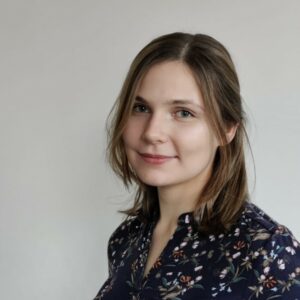 Eglė, from Lithuania, is a graduate of Environmental Studies and Sustainability Science MSc (Lund University) with a career as a manager and entrepreneur. Prior to taking on managing roles, she has done extensive advocacy work on sustainability and climate-related topics: from campaigning on climate change and poverty issues in Oxfam to working on community renewable energy projects in London to co-founding a sustainable consumption non-profit in Sweden and working on different energy storage associations in Brussels.
Eglė, from Lithuania, is a graduate of Environmental Studies and Sustainability Science MSc (Lund University) with a career as a manager and entrepreneur. Prior to taking on managing roles, she has done extensive advocacy work on sustainability and climate-related topics: from campaigning on climate change and poverty issues in Oxfam to working on community renewable energy projects in London to co-founding a sustainable consumption non-profit in Sweden and working on different energy storage associations in Brussels.
“One of the greatest achievements in my career has been leading the creation of the Flow Batteries Europe association. In this role, I have been single-handedly taking care of the legal, administrative, operational and strategic tasks since its establishment and I continue to lead its representation at the European level.”
Her most immediate contribution to the energy transition is with the association that she is currently managing: “Flow batteries are a safe, effective, and sustainable energy storage technology, which can significantly increase the share of renewable energy, and yet they are mostly overlooked in the market and at the European and national policymaking levels.
I, therefore, want to use this opportunity to learn more about the European electricity market, meet other young energy stakeholders, and identify how I can best help the stakeholders that rely on me succeed.”
Carolina Quijada
 Carolina Quijada is a recent graduate in Mechanical Engineering based in Panama, Central America. In 2018, she co-founded an NGO called Jóvenes y Cambio Climático (Youth and Climate Change), where she also acts as the lead of the Energy Compacts project (in partnership with SEforALL and the UN).
Carolina Quijada is a recent graduate in Mechanical Engineering based in Panama, Central America. In 2018, she co-founded an NGO called Jóvenes y Cambio Climático (Youth and Climate Change), where she also acts as the lead of the Energy Compacts project (in partnership with SEforALL and the UN).
She spoke about her passion and dedication to projects positioned at the intersection between climate change, energy transition and youth:
“My passion for climate change was spurred by my participation in the UN-sponsored First Leadership Academy for Youth on Climate Change in Panama, in 2018. That same growing passion led me to found the first youth-led civil society organisation to address climate change issues in Panama, Youth and Climate Change.
As coordinator for these projects, I had a chance to survey young Panamanians of different ages (from children to young adults) about their knowledge of the energy transition and to seek to address existing gaps in understanding between policymakers and youth. I believe initiatives like this have the potential to inspire regional socio-economic and environmental development in Central America.”
Alicia Bassière
 Alicia is a PhD candidate (Center for Research in Economics and Statistics CREST-CNRS – Palaiseau, France) and a graduate with a Master in Economics (École Polytechnique/ENSAE – Palaiseau, France) from France.
Alicia is a PhD candidate (Center for Research in Economics and Statistics CREST-CNRS – Palaiseau, France) and a graduate with a Master in Economics (École Polytechnique/ENSAE – Palaiseau, France) from France.
In her work for her PhD, she focuses on providing quantitative tools for the energy transition. In particular, she works on the influence of future uncertainty on investments in renewable energy.
“Increasingly since 2017, I have investigated the impact of the dependence on fossil fuels and climate change issues on the world economy. I was shocked at how rarely they are at the centre of public debate. I, for my part, have consistently focused on the energy transition in various aspects through research internships, participation in various volunteering projects, and now a PhD.”
As the issue of climate change is often neglected in the news, Alicia has made her mission to bring awareness: “I am frequently involved with the press in order to popularise the subject of the energy transition, mainly to promote the importance of a systemic vision about it. I believe that there is a need for experts to make the link and help bring clear messages to the public.
She also notes that “women are too often absent from debates, even though they will be directly impacted by the energy transition too.”
Marina Monciatti
 Marina holds a Bachelor’s degree in Business and Finance (HULT International Business School) and a Master’s in Climate Change, Management and Finance (Imperial College London).
Marina holds a Bachelor’s degree in Business and Finance (HULT International Business School) and a Master’s in Climate Change, Management and Finance (Imperial College London).
She has worked as an intern at the United Nations Economic Commission for Latin America in Santiago de Chile, at GIZ for the cooperation programme EUROCLIMA+ in Brussels, and as a researcher at a chemical recycling company in London.
Since 2020, she has been working at the European Roundtable on Climate Change and Sustainable Transition (ERCST), Brussels, as a Researcher and, more recently, as a Policy Analyst. She focuses on climate change policies at the EU and international levels, specifically on response measures under the Paris Agreement, Decarbonization of Supply Chains, EU-Turkey relations and Just Transition policies.
Her focus is specifically on the energy transition: “During the past year, I built a network and established a Just Transition (JT) research stream in the organisation. As part of the research activities of this workstream, I am developing a JT Framework that aims to assess the social impacts of the transition through a set of indicators and provides guidance on developing a vision for a JT that will, in turn, translate into concrete actions.
[I believe that] a key pillar in achieving a Just Energy Transition is ensuring that SDG7 affordable and clean energy is adequately addressed. To do this, a well-proportioned mix of market approaches, tools, standards, and regulations in conjunction with a solid political vision for a decarbonised future is needed.”
Valbona Karapici
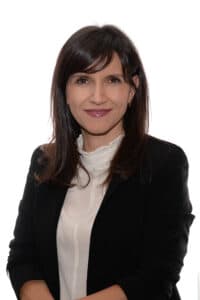 Valbona, from Albania, holds a Master of Science in Economics and Market Policy (University of Bologna) and a PhD with a thesis on electricity markets at Bamberg University, Germany.
Valbona, from Albania, holds a Master of Science in Economics and Market Policy (University of Bologna) and a PhD with a thesis on electricity markets at Bamberg University, Germany.
She is a lecturer for the modules “Introduction to Economics, Microeconomics and Macroeconomics” and “Economics of Generation” at the University of Tirana, Albania.
Valbona spoke about the role that individuals can have in solving the existing challenges towards achieving the energy transition:
“I have confidence that my multidisciplinary experience with research can be of significant importance in the context of the energy transition. That’s because new, cross-disciplinary approaches will be required to investigate different energy technologies and systems, economies and markets, emerging regulatory frameworks, consumer behaviour insights, and other social and cultural aspects of the transition and to find the appropriate solutions.
In particular, I have a substantial experience in the energy market in SEE (Southeast Europe) countries, which makes me well-positioned to contribute to the further development of the new Market Model in Albania and the Balkan region.”
Stay in the know
Get the Lights on Women newsletter.
